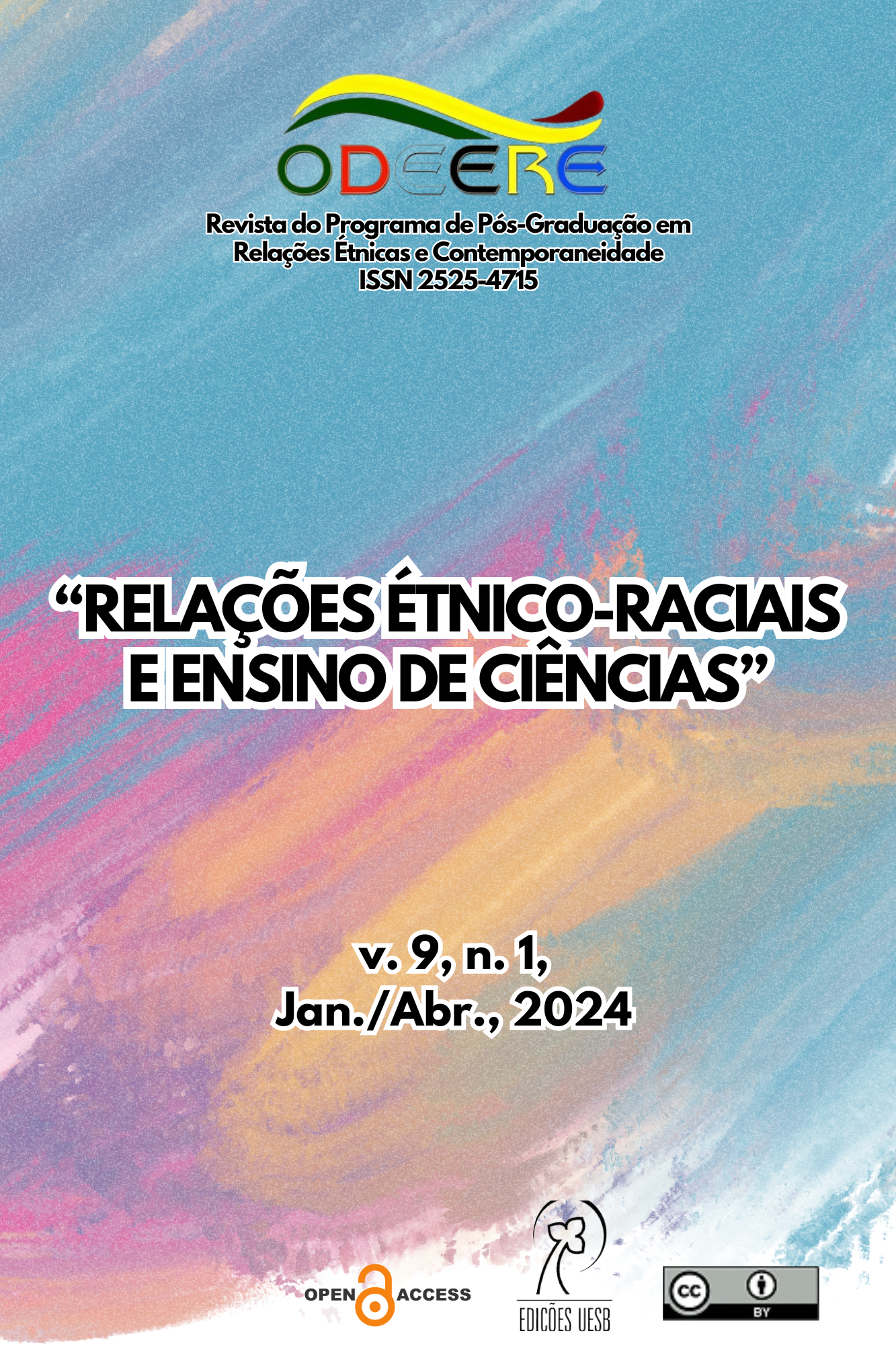Entre cidades partidas e quartos de despejo: territórios, nomenclaturas e relações de poder
DOI:
https://doi.org/10.22481/odeere.v9i1.13940Keywords:
Community, Favelas, Representations, Urban spaceAbstract
In September 2023, occurred the “I National Meeting of Production, Analysis and Dissemination of Information on Favelas and Urban Communities in Brazil”, promoted by the Brazilian Institute of Geography and Statistics (IBGE). The central objective of the event was to discuss the change in the nomenclature “subnormal clusters”, used in the agency's official research and publications to define popular territories in the country. In this text, through an experience report, I explain the aspects that I considered relevant on the event. I recall my memories, assuming, however, that memory is not established on the individual way. The memory is built of the events was formed by the collective experiences; they inform my view and the way I attribute meaning to reality. Under the auspices of this perspective, I conclude my narrative by stating that naming is exercising power. By opening its doors to society, IBGE moves closer to building a more democratic and plural society, moving away from stigmatizing and pejorative discourses about these territories and their populations.
Downloads
References
ALMEIDA, Silvio. Racismo estrutural. São Paulo: Pólen, 2019.
BOSI, Ecléa. Memória e sociedade, lembranças de velhos. 3.ed. São Paulo: Companhia das Letras, 1994.
DELACROIX, Christian. A história do tempo presente, uma história (realmente) como as outras?. Tempo e Argumento, Florianópolis, v. 10, n. 23, jan./mar. 2018, p. 39-79. DOI: https://doi.org/10.5965/2175180310232018005
FOUCAULT, Michel. Microfísica do poder. Rio de Janeiro: Graal, 2000.
GONÇALVES, Rafael Soares. Censos e favelas cariocas: evolução de um conceito censitário. Anais do Museu Paulista: História e Cultura Material, São Paulo, v. 28, p.1-30, 2020. DOI: https://doi.org/10.1590/1982-02672020v28e23
GONÇALVES, Rafael Soares; AMOROSO, Mauro. Golpe militar e remoções das favelas cariocas: revisitando um passado ainda atual. Acervo, Rio de Janeiro, [S. l.], v. 27, n. 1, p. 209–226, 2014.
HALBWACHS, Maurice. A memória coletiva. São Paulo: Vértice, 1990.
HARAWAY, Donna. Saberes localizados: a questão da ciência para o feminismo e o privilégio da perspectiva parcial. Cadernos Pagu, Campinas, n. 5, p. 7–41, 2009.
IBGE. I Encontro Nacional de Produção, Análise e Disseminação de Informações sobre as Favelas e Comunidades Urbanas do Brasil. [online]. Disponível em: https://eventos.ibge.gov.br/infofavela2023/apresentacao. Acesso em: 18 nov. 2023.
IBGE. Notas metodológicas n. 01. Sobre a mudança de Aglomerados Subnormais para Favelas e Comunidades Urbanas. Rio de Janeiro: IBGE, 2024.
JESUS, Carolina Maria de. Quarto de despejo. São Paulo: Ática, 2000.
KOSELLECK, Reinhardt. Futuro passado: contribuições à semântica dos tempos históricos. Rio de Janeiro: Contraponto; Ed. PUC-Rio, 2006.
LE GOFF, Jacques. História e memória. Campinas: Editora da UNICAMP, 1990.
LEITE, Márcia Pereira. Da “metáfora da guerra” ao projeto de “pacificação”: favelas e políticas de segurança pública no Rio de Janeiro. Revista Brasileira de Segurança Pública, São Paulo, v. 6, n. 2, 2012. https://doi.org/10.31060/rbsp.2012.v6.n2.126
LEITE, Márcia Pereira. Entre a “guerra” e a “paz”: Unidades de Polícia Pacificadora e gestão dos territórios de favela no Rio de Janeiro. Rio de Janeiro, Dilemas, vol. 7, n. 4, p. 625-642, out/nov/dez. 2014. https://doi.org/10.4322/dilemas.v7.n.4.7270
MELLO, Marco Antônio da Silva; MACHADO DA SILVA, Luíz Antônio; FREIRE, Letícia de Luna; SIMÕES, Soraya Silveira. Favelas cariocas: ontem e hoje. Rio de Janeiro: Garamond, 2012.
MISSE, Michel. Sobre a acumulação social da violência no Rio de Janeiro. Civitas, Porto Alegre, v. 8, n. 3, 2008. https://doi.org/10.15448/1984-7289.2008.3.4865
OLIVEIRA, Samuel Silva Rodrigues de. Informalidade urbana, classe trabalhadora e raça no Rio de Janeiro: a história dos censos de favelas (1948-1960). Revista de História, São Paulo, [S. l.], n. 180, p. 1-27, 2021. https://doi.org/10.11606/issn.2316-9141.rh.2021.170643
RUFINO, Luiz. Pedagogia das encruzilhadas. Rio de Janeiro: Mórula Editorial, 2019.
SPIVAK, Gayatri Chakravorty. Pode o subalterno falar? Belo Horizonte: Editora UFMG, 2010.
VALLADARES, Licia do Prado. A invenção da favela: do mito de origem à favela.com. Rio de Janeiro: Fundação Getúlio Vargas, 2005.
VALLADARES, Licia do Prado. Passa-se uma casa: análise do programa de remoção de favelas no Rio de Janeiro. Rio de Janeiro: Zahar, 1978.
VENTURA, Zuenir. Cidade partida. São Paulo: Companhia das Letras,1994.
Downloads
Published
Issue
Section
License
Copyright (c) 2024 ODEERE

This work is licensed under a Creative Commons Attribution 4.0 International License.
You are free to:
Share - copy and redistribute the material in any medium or format; Adapt - remix, transform, and build from the material for any purpose, even commercially. This license is acceptable for Free Cultural Works. The licensor cannot revoke these freedoms as long as you follow the terms of the license.
Under the following terms:
Attribution - You must appropriately give credit, provide a link to the license, and indicate if any changes have been made. You may do so in any reasonable way, but not in a way that suggests that you or your use is endorsed by the licensor.
There are no additional restrictions - You cannot apply legal terms or technological measures that legally restrict others to make any use permitted by the license.














